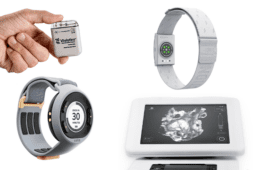According to the American Dental Association, 91% of adults between ages 20 and 64 have experienced tooth decay, with 27% untreated. This prevalent condition can be quite costly. An implant for a single tooth can cost between $3,000 and $4,500, according to the New York Times. A full or partial set replacement can cost between $20,000 and $45,000. Insurance carriers typically only cover about 10% of the costs.
However, a new advancement in dentistry may help people who receive implants keep their mouths clean. Researchers from the Univ. of Groningen in the Netherlands have designed a 3D-printed tooth made of antimicrobial plastic, allowing it to fend off bacteria.
“The material can kill bacteria on contact, but on the other hand it’s not harmful to human cells,” said Andreas Herrmann, of the university, to New Scientist.
The research was published in Advanced Functional Materials.
Herrmann and colleagues integrated antimicrobial quaternary ammonium salts with dental resin polymers. Positively charged, the salts cause the negatively charged bacterial membrane to burst and perish.
The salt and polymer blend was used in a 3D printer and hardened with ultraviolet light. The team printed a variety of objects, including replacement teeth and orthodontic braces. Next, the objects were coated with a mix of saliva and Streptococcus mutans, commonly found in the oral cavity and a contributor to tooth decay.
The material with the additional salts killed over 99% of the bacteria, while the control without the salts killed less than 1%. Samples mixed with the saliva and bacteria for about six days.
For clinical use, the study needs to be extended, and the plastic’s compatibility with toothpaste tested, Herrmann said to New Scientist.
Further, the researchers need to confirm the plastic is durable enough for dental use.
According to Herrmann, though kinks need to be worked out, the technology can be applied in the foreseeable future. He said such medical applications take much less time to develop than drugs.




